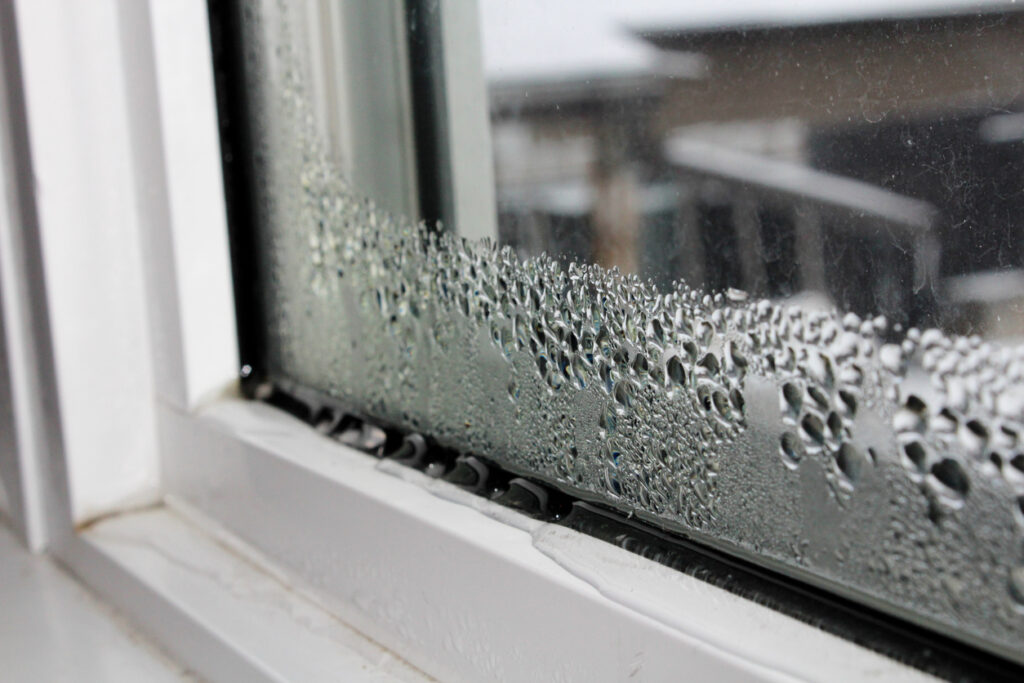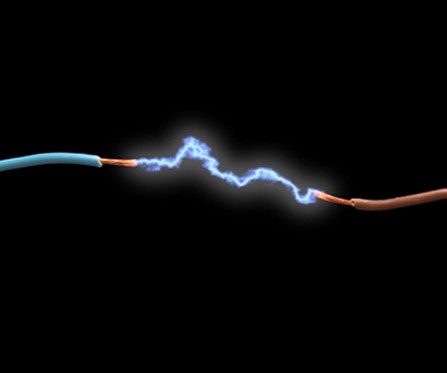Tips for Maintaining Ideal Humidity Levels in Your Minnesota Home
Recommended Humidity Levels for Summer & Winter
Maintaining proper humidity levels in your home is important for both your health and the overall comfort of your living space. In Minnesota, the humidity levels can vary significantly throughout the year, with high humidity in the summer and low humidity in the winter. It’s important to understand the ideal humidity levels for your home and how to maintain them in order to create a comfortable and healthy living environment.
What Are the Best Humidity Levels in the Home?
The optimal humidity level for a home is between 30% to 50%. Humidity levels that are too low or too high can have negative impacts on both your health and your home.
Low humidity can cause dry skin, respiratory issues, and static electricity. It can also damage wood furniture and floors, causing them to become dry and brittle.
On the other hand, high humidity levels can create a breeding ground for mold and dust mites, leading to respiratory issues and allergies. High humidity can also cause paint to peel and wallpaper to become loose.
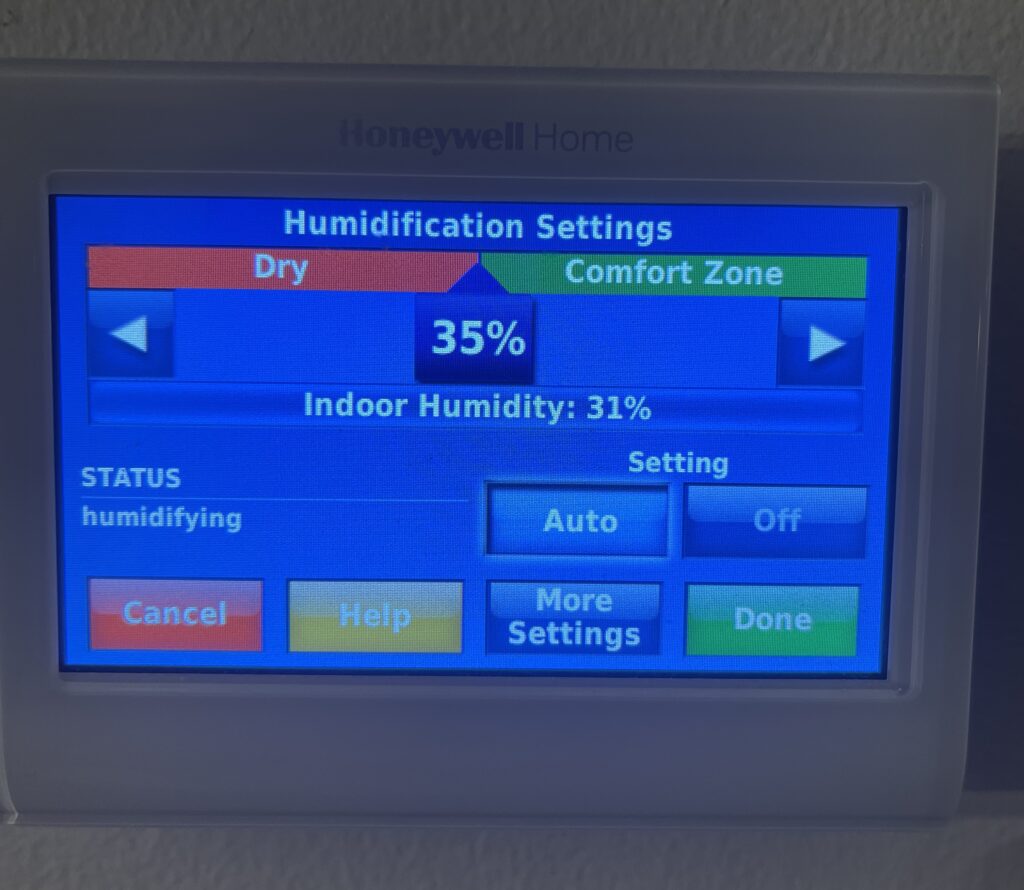
What Is the Ideal Humidity for a House in the Winter?
In the winter, the humidity inside your Minnesota home can drop significantly due to the dry, cold air. This can lead to dry skin, respiratory issues, and static electricity. It’s important to use a humidifier to maintain proper humidity levels in your home during the winter months
What Is the Ideal Humidity for a House in the Summer?
In the summer it isn’t the heat, it’s the humidity! Home humidity can increase due to the hot, humid weather. This can lead to mold and dust mite growth, as well as discomfort due to the oppressive heat and humidity. Using an air conditioner and a dehumidifier can help to maintain proper humidity levels in your home during the summer.
How Humidity Levels Can Affect Your Home
The humidity in your home can have a number of benefits for homeowners. It can improve your overall health and comfort, as well as protect your home and belongings from damage.
According to a study conducted by the Environmental Protection Agency, proper humidity levels can help to reduce the spread of illness and allergies, as well as improve the overall air quality in your home.
Additionally, maintaining proper humidity can help to protect your home and belongings from damage. Low humidity can cause wood furniture and floors to become dry and brittle, while high humidity can lead to paint peeling and wallpaper becoming loose.
What Is the Best Humidity Level for Sleeping?
Maintaining proper humidity in your bedroom is important for both your comfort and your health. When it comes to sleeping, the ideal humidity level is between 30% to 50%.
Low humidity causes dry skin, respiratory issues, and static electricity. These issues can disrupt your sleep and make it difficult to fall and stay asleep. On the other hand, high humidity levels can create a breeding ground for mold and dust mites, leading to respiratory issues and allergies. High humidity can also make it difficult to sleep due to the oppressive heat and humidity.
Using a humidifier or air purifier with a built-in humidifier can help to maintain the proper humidity level in your bedroom. You can also use a hygrometer, a device that measures levels, to monitor the humidity in your bedroom and ensure that it stays within the optimal range.
By maintaining proper humidity in your bedroom, you can improve your sleep quality and overall health. A comfortable and healthy sleep environment is essential for getting a good night’s rest and waking up feeling refreshed and rejuvenated.
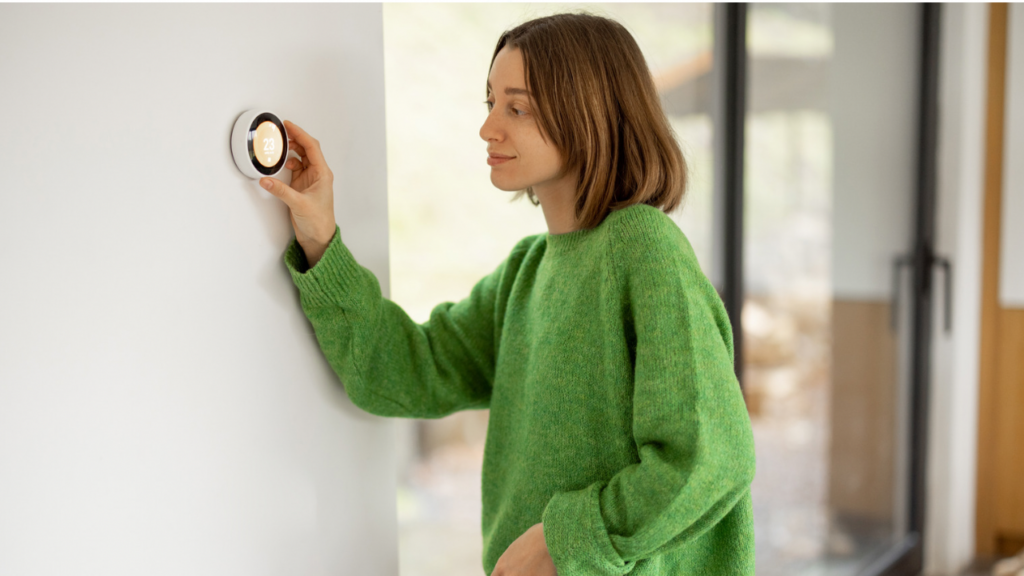
Maintain Ideal Humidity Levels With Our Comprehensive Control Solutions
An HVAC professional from Dean’s Home Services can provide a variety of services to improve indoor humidity levels in your home. Some of Dean’s Twin Cities HVAC services include:
- Humidifier installation: A properly installed humidifier can help to increase humidity levels in your home during the dry winter months. An HVAC professional can help to determine the best type of humidifier for your home, based on your specific needs and the size of your living space.
- Air conditioner and dehumidifier installation: An air conditioner and dehumidifier can help to lower humidity levels in your home during the hot and humid summer months. An HVAC professional can help to determine the best type of air conditioner and dehumidifier for your home, based on your specific needs and the size of your living space.
- Duct sealing and insulation: Proper sealing and insulation of your home’s ducts can help to improve indoor air quality and maintain proper humidity levels. An HVAC professional can assess your ducts and recommend any necessary repairs or upgrades.
- Ventilation system installation: A properly functioning ventilation system can help to improve indoor air quality and maintain proper humidity. A local heating and cooling HVAC professional with Dean’s can assess your current ventilation system and recommend any necessary repairs or upgrades.
- Regular maintenance: Regular maintenance of your HVAC system can help to ensure that it’s functioning properly and maintaining proper humidity levels. An HVAC professional from Dean’s Home Services can provide regular maintenance services to ensure that your system is in good working order.
Conquer winter dryness and summer swampiness: Call Dean’s Home Services today for a free consultation on Minneapolis home humidity control!
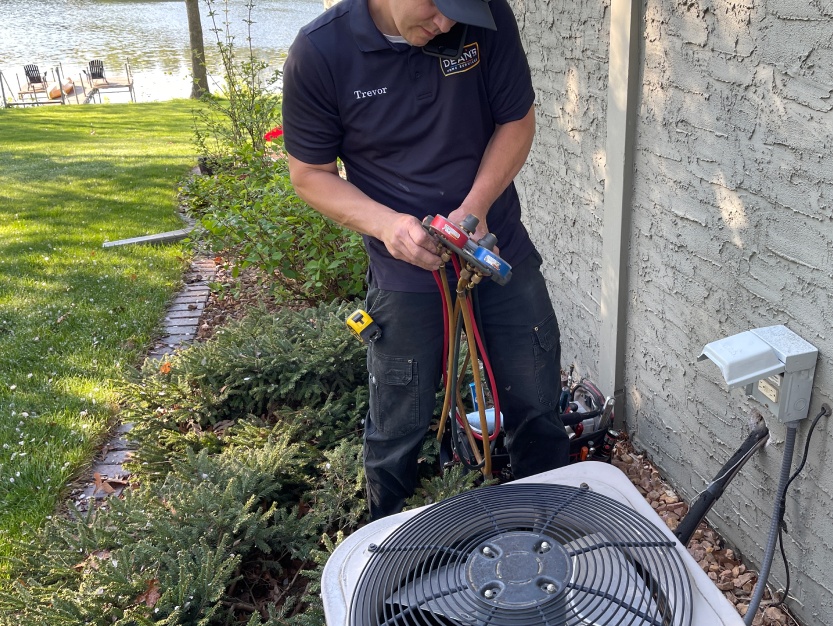
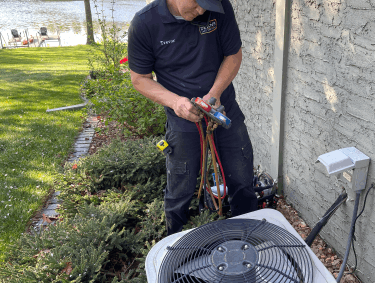



Request Service


- Free annual evaluations
- 10% discount on repairs and equipment
- Priority scheduling
- No regular travel charges
- Discounted after-hours travel charges



